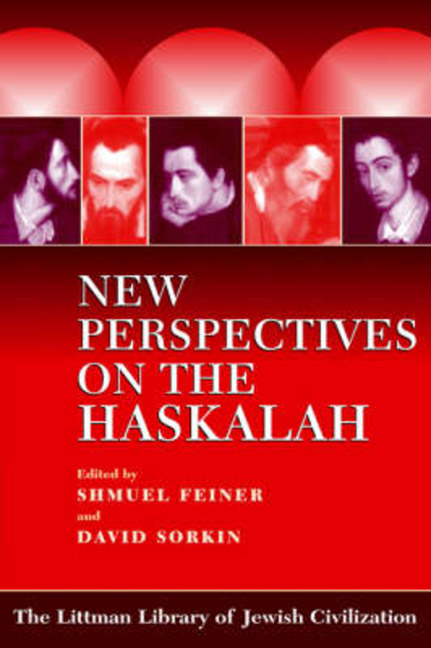Book contents
- Frontmatter
- Preface
- Contents
- Note on Transliteration
- Introduction
- 1 The Early Haskalah
- 2 Naphtali Herz Wessely and the Cultural Dislocations of an Eighteenth-Century Maskil
- 3 Enlightenment Values, Jewish Ethics: The Haskalah's Transformation of the Traditional Musar Genre
- 4 Was there a ‘Haskalah’ in England? Reconsidering an Old Question
- 5 Strategy and Ruse in the Haskalah of Mendel Lefin of Satanow
- 6 The Struggle of the Mitnagedim and Maskilim against Hasidism: Rabbi Jacob Emden and Judah Leib Mieses
- 7 Magic and Miracle-Workers in the Literature of the Haskalah
- 8 Portrait of the Maskil as a Young Man
- 9 Reality and its Refraction in Descriptions of Women in Haskalah Fiction
- 10 Enlightened Rabbis as Reformers in Russian Jewish Society
- 11 Towards a Historical Definition of the Haskalah
- Glossary
- Notes on Contributors
- Bibliography
- Index
Introduction
- Frontmatter
- Preface
- Contents
- Note on Transliteration
- Introduction
- 1 The Early Haskalah
- 2 Naphtali Herz Wessely and the Cultural Dislocations of an Eighteenth-Century Maskil
- 3 Enlightenment Values, Jewish Ethics: The Haskalah's Transformation of the Traditional Musar Genre
- 4 Was there a ‘Haskalah’ in England? Reconsidering an Old Question
- 5 Strategy and Ruse in the Haskalah of Mendel Lefin of Satanow
- 6 The Struggle of the Mitnagedim and Maskilim against Hasidism: Rabbi Jacob Emden and Judah Leib Mieses
- 7 Magic and Miracle-Workers in the Literature of the Haskalah
- 8 Portrait of the Maskil as a Young Man
- 9 Reality and its Refraction in Descriptions of Women in Haskalah Fiction
- 10 Enlightened Rabbis as Reformers in Russian Jewish Society
- 11 Towards a Historical Definition of the Haskalah
- Glossary
- Notes on Contributors
- Bibliography
- Index
Summary
IN a recent article Robert Darnton criticized the state of contemporary research on the Enlightenment as ‘inflationary’, noting that it ‘has blown up to such a size that it would not be recognized by the men who first created it’. In view of the diversification of Enlightenment studies, seen for example in the multiplicity of conferences and publications on such subjects as the Josephine Enlightenment, the pietistic Enlightenment, and the religious Enlightenment, Darnton observed that ‘the Enlightenment is beginning to be everything and therefore nothing’.
The editors of this volume endorse Darnton's suggestion that Enlightenment studies ought to be deflated and that, first and foremost, the Enlightenment should be restored to history as a concrete trend fixed in time and place whose ramifications and transformations can be ascertained. They also agree that it is important to examine the milieu of the intellectuals who initiated the Enlightenment and who idealistically attempted to reform the world according to a rationalist, liberal agenda. In order to comprehend fully the significance of the Enlightenment, one must examine the enlighteners’ rhetoric, describe their vision of a reformed world, study their strategies, reconstruct the social settings in which they worked, and analyse the objections their adversaries raised and the confrontations that ensued.
By reducing the Enlightenment to its French focus or even limiting it to eighteenth-century Europe, however, we may be losing the forest for the trees. In order to avoid overlooking less well known aspects of the Enlightenment, or homogenizing those that are known, it is advisable to think not about ‘one’ Enlightenment but rather about ‘varieties’ of Enlightenment. The essays in this volume address a subject which scholars of the Enlightenment have tended to neglect: the Haskalah, or Jewish Enlightenment. The Haskalah provides an interesting example of one of the Enlightenments of eighteenth-to nineteenth-century Europe which also constituted a unique chapter in the social history of European Jewry. It encompasses over 120 years (from around the 1770s to the 1890s), and a large number of Jewish communities, from London in the west, to Copenhagen in the north, to Vilna and St Petersburg in the east.
- Type
- Chapter
- Information
- New Perspectives on the Haskalah , pp. 1 - 8Publisher: Liverpool University PressPrint publication year: 2001

